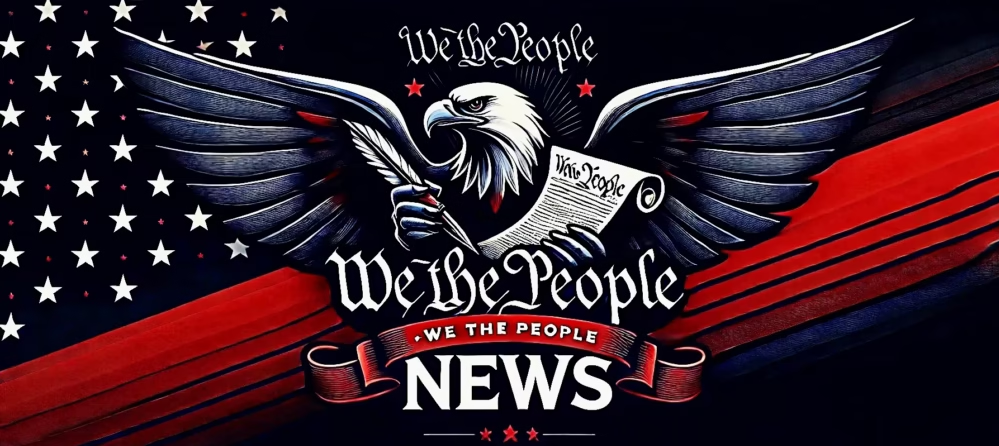By Don Matthews | We The People News
Let’s set the record straight once and for all: saying “fuck,” “shit,” “bitch,” or any other so-called offensive word is not a crime. It is not a misdemeanor. It is not a disorderly conduct charge waiting to happen. It is, unequivocally and unshakably, protected speech under the First Amendment.
In America, the right to criticize government, express dissent, and speak freely — even in vulgar terms — is more than a privilege. It is the bedrock of liberty. And yet, far too often, law enforcement and government officials attempt to twist the use of profanity into a criminal act. They rely on intimidation, vague “harassment” laws, or even threats of arrest to muzzle speech they personally dislike.
Let me be blunt: that is unconstitutional. Period.
THE SUPREME COURT SPOKE. YOU DON’T GET TO CENSOR.
The U.S. Supreme Court made this crystal clear over 50 years ago in Cohen v. California (1971), when a young man was arrested for wearing a jacket in a courthouse that read: “Fuck the Draft.”
Justice Harlan wrote the majority opinion, affirming:
“One man’s vulgarity is another’s lyric.”
“The constitutional right of free expression is powerful enough to protect the vulgar expression of ideas — even those which offend.”
That landmark case didn’t just protect Cohen. It protected all of us — every protestor, every journalist, every citizen who dares to say something unpopular, abrasive, or passionate.
WORDS CAN BE STRONG — BUT THEY AREN’T CRIMES.
To this day, people are wrongfully threatened with arrest or charged under bogus laws like “disorderly conduct,” “harassing communications,” or “breach of peace” — all because they dared to use strong language in the presence of a government employee.
But as the courts have repeatedly held: unless you are making a true threat or inciting imminent lawless action, your speech — vulgar or not — is constitutionally protected.
Profanity is not cause for arrest. It is not probable cause. It is not “disorder.” It is expression.
CASE LAW ROUNDUP:
• Cohen v. California (1971): “Fuck the Draft” jacket = protected speech.
• Houston v. Hill (1987): Verbal challenges to police, even angry ones, are not illegal.
• Duran v. City of Douglas (1990): Man flips off and curses at cops — court finds this was protected speech.
• Lewis v. City of New Orleans (1974): Struck down a law criminalizing verbal abuse of police.
• State v. Smith (Utah App. 2004): Angry voicemails full of vulgarity = not harassment under the law.
The First Amendment doesn’t give way to government discomfort. It wasn’t written to protect polite conversation — it was written to protect unpopular speech in the face of unaccountable power.
THE DOUBLE STANDARD OF POWER
Here’s the hypocrisy: police officers and public officials can scream, curse, and intimidate — and no one bats an eye. But the moment a citizen uses the same language to express outrage at injustice or government abuse, they’re suddenly labeled a “threat,” a “harasser,” or worse — a criminal.
That’s not justice. That’s tyranny disguised in uniform.
When government agents try to criminalize language, they’re not enforcing the law — they’re violating it.
WE DON’T NEED CENSORSHIP — WE NEED ACCOUNTABILITY.
The real danger isn’t the word “fuck.” The real danger is a system that fears that word more than it fears:
• Police corruption
• Illegal surveillance
• Qualified immunity
• Retaliation against journalists and activists
If you’re more offended by a four-letter word than you are by abuse of power, you’ve lost the plot.
PROFANITY ISN’T THE PROBLEM. OPPRESSION IS.
At We The People News, we will continue to speak the truth — in plain English. Sometimes that means uncomfortable words. Always, it means uncompromising honesty.
So the next time someone in power threatens you with arrest for saying “fuck,” “shit,” or “bitch” — remember: you have a right to say it. And we have a duty to defend that right.
Because if they can criminalize your words today, they’ll criminalize your beliefs tomorrow.
And that’s the real obscenity. I’ve got your fucking back
Discover more from We The People News
Subscribe to get the latest posts sent to your email.

